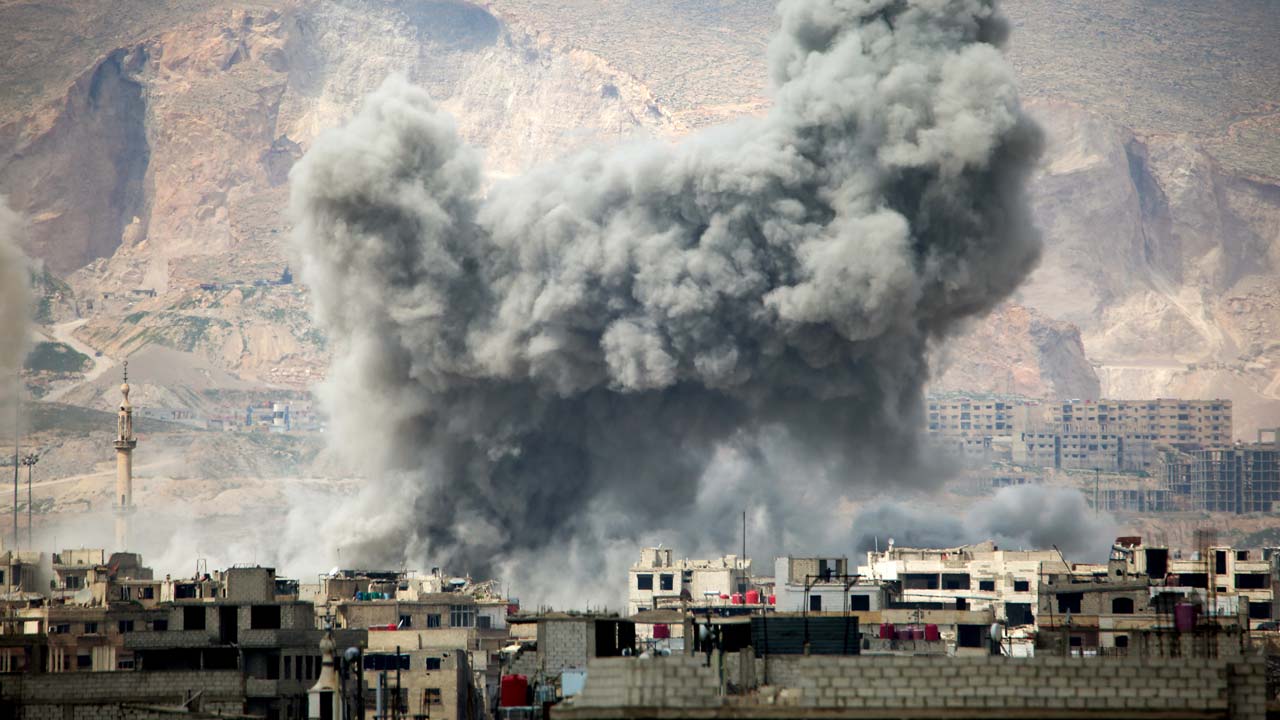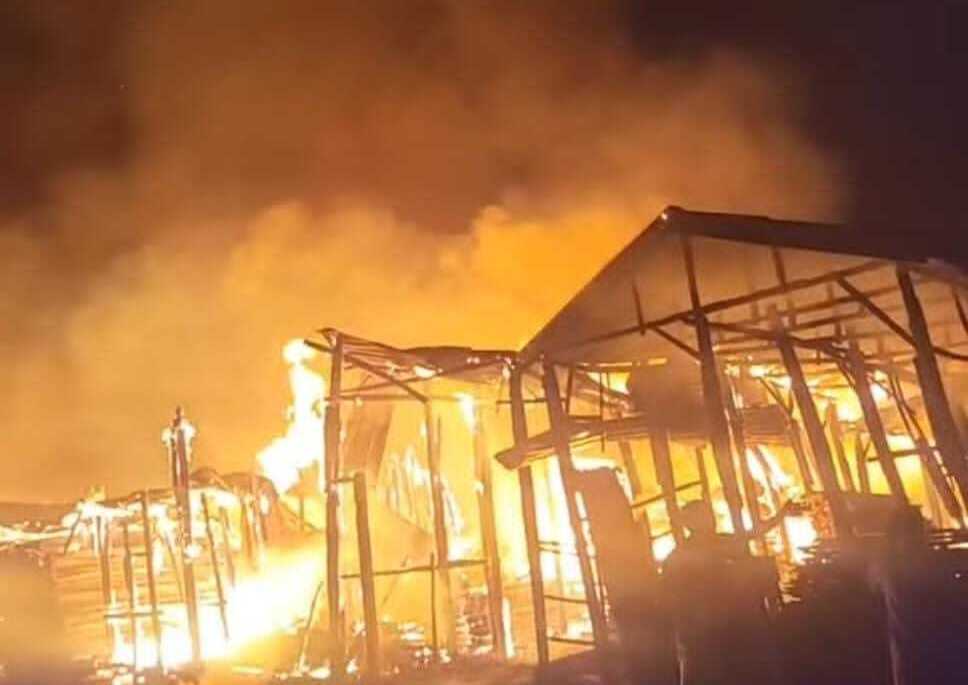
AMER ALMOHIBANY / AFP
Syrian government forces clashed with rebels and hammered opposition-held areas of east Damascus on Monday, before calm returned to the capital after a surprise assault. In the north of the country, meanwhile, a Kurdish militia said the Russian military is to train Kurdish forces fighting the Islamic State group.
Rebels and allied jihadists, led by former Al-Qaeda affiliate Fateh al-Sham Front, early Sunday attacked government positions in east Damascus, initially scoring gains.
But forces loyal to President Bashar al-Assad drove them back by nightfall and began a fierce bombing campaign, a monitor said, before calm was restored on Monday afternoon in eastern Damascus where shops reopened and cars returned to the roads.
The guns fell silent following what Rami Abdel Rahman, head of the Syrian Observatory for Human Rights, termed “intense air strikes… on opposition-held positions in Jobar from which the offensive was launched”.
He could not specify whether the raids were carried out by Syrian or allied Russian warplanes.
Control of the district — which has been a battleground for more than two years and is the closest rebel position to the heart of Damascus — is divided between rebels and allied jihadists on one side and government forces on the other.
Earlier Monday, regime forces clashed with rebel groups in an industrial zone between Jobar and Qabun, a besieged opposition-held district to the north.
“In their assault yesterday (Sunday), rebels were able to open a road for several hours between Qabun and Jobar, but the area is now a front line and they can no longer cross between the two,” Abdel Rahman said.
A Syrian military source told AFP the army had recaptured “most of the positions where rebels advanced yesterday”.
“The army foiled the armed groups’ plan to link the Jobar district with Qabun,” the source said, adding that “military operations in the area are ongoing”.
– Rebels hit Russian embassy –
Sunday’s rebel assault was their most important incursion inside Damascus in years.
After seizing several buildings in Jobar, opposition fighters advanced briefly into the neighbouring Abbasid Square area — the first time in two years the opposition had broken into that district.
Abbasid Square was returning to normal on Monday, AFP correspondents said, as residents surveyed the damage from the latest clashes.
Inside the Abbasid Square bus station, which rebels managed to overrun for few hours on Sunday, several soldiers curled up under a blanket to rest after hours of heavy fighting.
Aircraft could still be heard overhead, but many of the roads that had been sealed off by troops the previous day were reopened.
The clashes killed at least 26 members of the regime forces and 21 rebels and jihadists, Abdel Rahman said. He did not have an immediate toll for Monday morning’s air strikes.
State news agency SANA said government troops were targeting rebel bases around Jobar on Monday.
“The military operations north of Jobar targeted the areas from which the terrorists set out, and a large number of them were killed,” it said.
The agency reported that opposition fighters on Sunday bombarded the Russian embassy compound in the capital’s Mazraa neighbourhood but that there were no casualties.
– New peace talks due –
The Islamist Faylaq al-Rahman rebel group and the Fateh al-Sham Front — known as Al-Nusra Front before it renounced its ties to Al-Qaeda — have a presence in Jobar.
Syria’s conflict erupted in March 2011 with protests against Assad’s rule but has evolved over the years into a complex civil war.
More than 320,000 people have been killed and millions more have been displaced by the conflict.
Repeated peace talks over the years have failed to bring about a political solution, but another round of negotiations is due to begin in Geneva on Thursday.
In recent months, the regime has sought to secure territory around Damascus with renewed offensives on besieged rebel towns along with local “reconciliation” deals.
The war saw a turning point when Russia intervened in September 2015 in support of the regime, allowing pro-government forces to regain significant territory they had lost to the rebels.
A spokesman for the Kurdish People’s Protection Units (YPG) said Monday that Russia’s military is to train the militia which controls large areas of northern Syria.
The YPG makes up the bulk of the Syrian Democratic Forces, a US-backed alliance of Kurdish and Arab fighters that has seized swathes of territory from the Islamic State group.
Also Monday, the US Defence Department said it was investigating allegations that a strike on Thursday targeting Al-Qaeda leaders near a mosque in northern Syria killed numerous civilians.
Local reports and the Observatory have claimed dozens of people were killed, including civilians.






